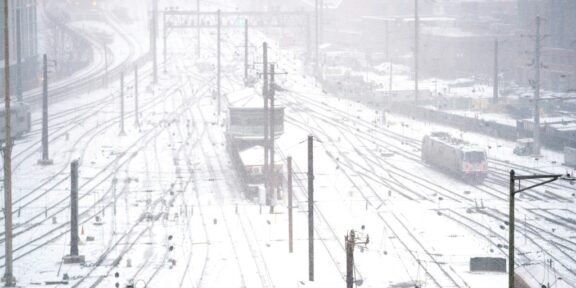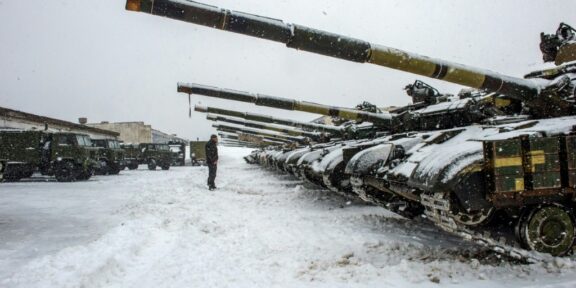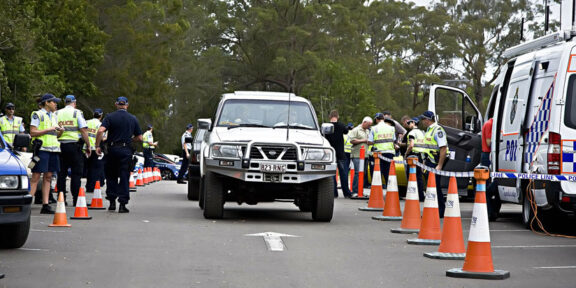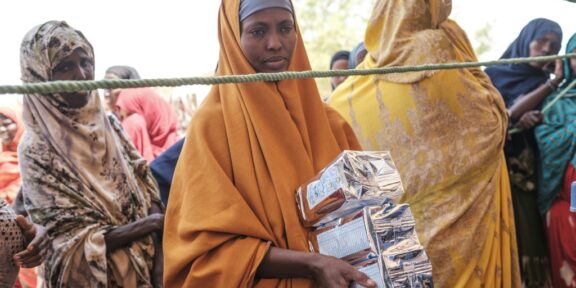Survivors of Haiti’s devastating earthquake looted an aid convoy Friday as the impoverished Caribbean nation scrambled to roll out a relief effort haunted by the chaotic response to past natural disasters.
The mobbing of relief supplies and tumultuous handouts underscored the desperation in the wake of last week’s powerful tremor, which killed more than 2,000 people and destroyed or damaged over 130,000 homes.
The 7.2-magnitude earthquake robbed tens of thousands of Haitians of everything they owned in a matter of seconds, with the hunt for necessities like clean water and food now a daily struggle for many.
And while humanitarian convoys have begun distributing aid, the quantities have been insufficient and those tasked with delivering supplies often lack logistical expertise.
Chaotic scenes were captured by an AFP photographer Friday in Les Cayes, one of the hardest-hit cities, as bags of rice were handed out to clamoring crowds.
Looters were able to storm one of two supply trucks before law enforcement intervened, according to the photographer, with the remaining goods haphazardly handed out at the local police station.

Desperate Haitians have had to rely on the generosity of their neighbors and relatives, many of whom have little to spare.
“I have a friend who came from (the capital) Port-au-Prince to bring me water and food and I shared that with my neighbors. He also gave me some clothes,” said Marcel Francois, a father of two who was dragged from the rubble in the wake of the quake after three hours buried under concrete.
From the ruins of his house on the road connecting Les Cayes to the airport, he now has a front-row seat to the recovery effort.
“I see a lot of authorities marching, processions of officials with their sirens and big cars from NGOs. Aid trucks also pass, but there has been nothing arriving for me,” the 30-year-old said.
– ‘No one has come to help us’ –
Even before last week’s powerful earthquake, Haiti, one of the world’s poorest countries, was wracked by mounting Covid-19 cases and a political crisis that culminated last month with the assassination of president Jovenel Moise.

The nation is also still reeling from the 2010 earthquake that rattled the capital and killed over 200,000.
More than 1.5 million Haitians were left homeless by that disaster, and scores of survivors spent years living in tents contending with a deadly cholera epidemic, despite billions of dollars in foreign donations and pledged aid.
In an echo of that earlier tragedy, officials have tried to once again buoy optimism with promises to “build back better”.
“We have seen an incredible moment of unity in the response to the earthquake, so we believe that this can be turned into an opportunity to rebuild towards the better,” UN deputy chief Amina Mohammed said Friday after a 24-hour visit.
But the lofty promises ring hollow to victims of the latest crisis to plague Haiti.
Though humanitarian workers have warned against repeating the mistakes that hampered the 2010 response, tent cities are already appearing across vacant lots in urban centers.
And while Haitian Prime Minister Ariel Henry has promised to organise elections as soon as possible, ordinary Haitians are anxious to start receiving aid.
“We live a miserable life,” Wilford Roosvelte, a survivor of the earthquake, told AFP from a football stadium full of tents.
“The ground is flooded because of the rain. This is where people sleep. No one from the authorities has come to help us.”
amb/ybl/lb/dva/oho







